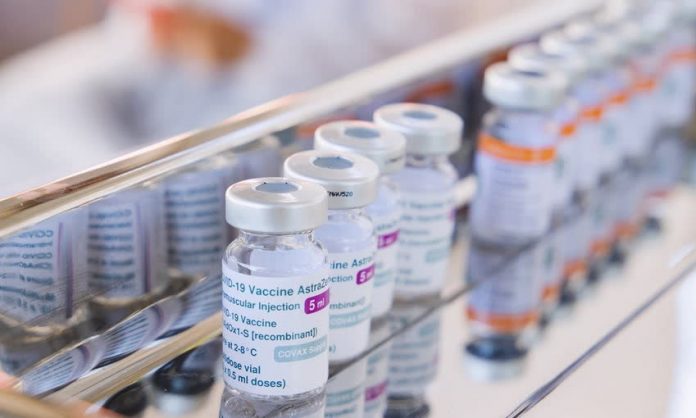BANGKOK (NNT) – Following the National Communicable Disease Committee’s decision to allow people to receive a dose of the AstraZeneca vaccine after getting a first shot of Sinovac, because academic studies indicate that changing the vaccine improves the overall efficacy, making the inoculation equivalent to having received two AstraZeneca doses, Head of the Center of Excellence in Clinical Virology at the Faculty of Medicine, Chulalongkorn University, Prof. Dr. Yong Poovorawan, has provided a briefing on this topic.
Prof. Dr. Yong said the center’s teams of some 30 scientists and faculty members have been conducting about five COVID-19 vaccine research projects, so that the country can quickly benefit from its existing resources.
According to the center, administering a first dose of an inactivated vaccine followed by a second dose of a viral vector vaccine further stimulates the immune system. Inactivated vaccines use pathogens or virus particles that have been grown in culture and then killed to destroy disease producing capacity, so as to provide an effective immune response. After getting a first shot of an inactivated vaccine and a second shot of a viral vector vaccine, a booster effect will be generated. It is similar to the immune responses of people who have just recovered from COVID-19 and have received a vaccine dose. The center has conducted tests to verify the result.
At the same time, getting two shots of an inactivated vaccine will increase effectiveness against severe infection, and a third shot of a viral vector vaccine will yield a high booster effect.
The center’s researchers are also studying the mutation of the Delta variant of COVID-19 and the immune system. People in other countries may not be able to look into these issues as they may not use inactivated vaccines, and viral vector vaccines are not widely used in China at this time.
Prof. Dr. Yong said he has abundant information, thanks to cooperation from all sides, including a large number of volunteers.
With the Ministry of Public Health having adjusted its policy according to the center’s proposal, vaccine recipients’ immune responses have improved in six weeks. Normally, a viral vector vaccine produces a greater immune response when given after 12 weeks. Given the current COVID-19 situation, people cannot wait any longer.
The center has to maximize the use of existing resources for the benefit of medical workers. Administering a third shot of a viral vector vaccine, produces a greater boost, without having to wait for other vaccine options.
There is enough information about changing the vaccine as well as records of more than 1,200 people registered with the Mohpromt platform. No severe adverse reactions have been reported so far.


